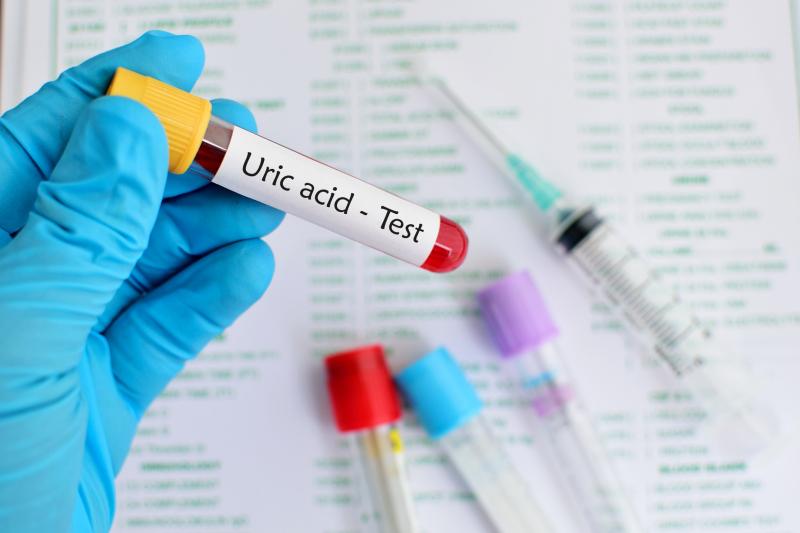
Even a slight increase in serum uric acid concentrations may increase mortality risk in the general population, a recent study has found.
Accessing a nationwide database of 500,511 individuals (mean age in both sexes, 62 years), researchers assessed the correlation between serum uric acid levels at baseline and all-cause and cardiovascular mortality over a 7-year follow-up. Enzymatic methods were used to measure uric acid.
A total of 5,578 all-cause deaths were reported, yielding a mortality rate of 1.1 percent. Deaths were more common among men than in women (1.7 percent vs 0.6 percent). These included 1,104 deaths, with an overall rate of 0.2 percent (0.4 percent in men, 0.1 percent in women). Kaplan-Meier analysis found that all-cause and cardiovascular mortality rates were high in both men and women with high serum uric acid (p=0.01).
Cox proportional hazards analysis confirmed this. Each 1-mg/dL increase in serum uric acid correlated with a significant jump in the risk of all-cause mortality (hazard ratio [HR], 1.06, 95 percent confidence interval [CI], 1.04–1.07) and cardiovascular mortality (HR, 1.07, 95 percent CI, 1.05–1.09) in men.
The same was true for women: all-cause mortality (HR, 1.05, 95 percent CI, 1.03–1.08) and cardiovascular mortality (HR, 1.07, 1.03–1.11).
“This study indicates that even a slight increase in serum uric acid levels was independently associated with all-cause and cardiovascular mortality in a community-based population and that the sex-specific threshold values of serum uric acid for these adverse outcomes might be lower than previously reported values,” researchers said.
“To verify our findings on the association between uric acid and mortality, a prospective interventional study using uric acid-lowering therapies is warranted,” they added.